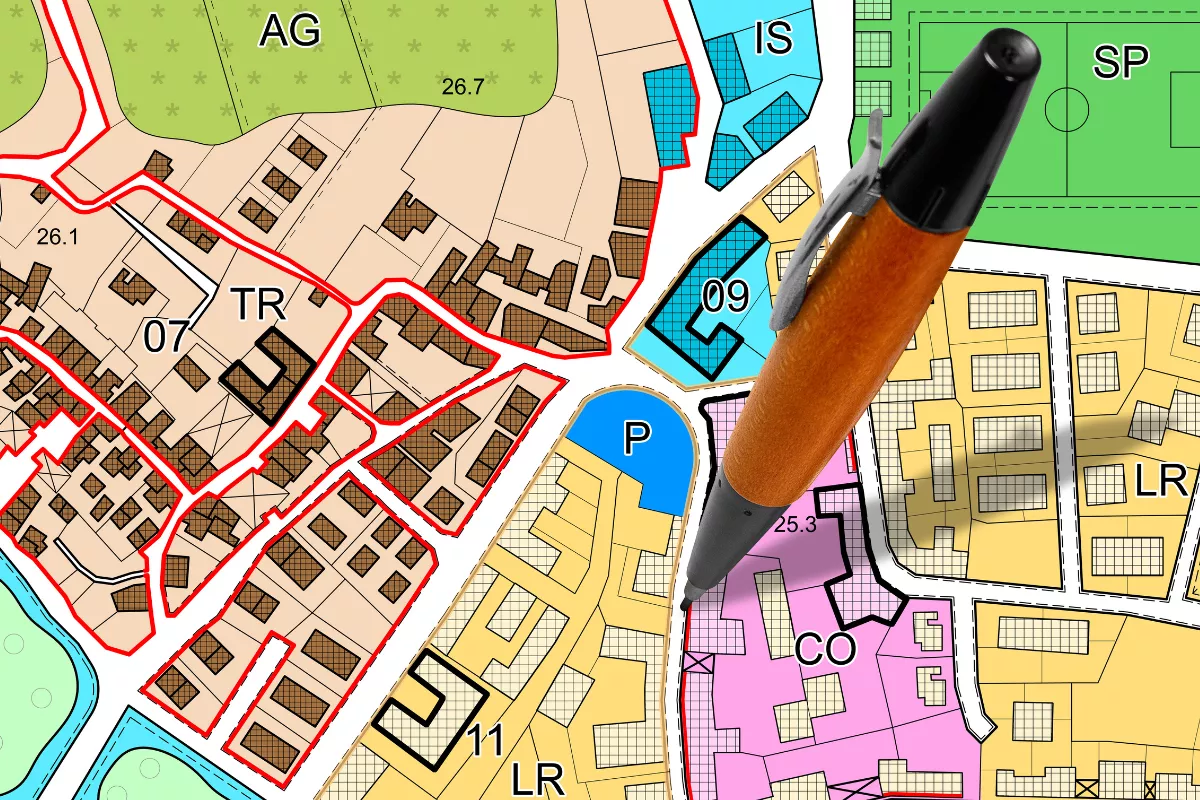We all have heard about zoning laws. They serve as the architectural blueprints for communities, directing the physical and operational structure of towns, cities, and counties.
These regulations are pivotal in shaping the environment we live in, but they can often appear as a labyrinthine tangle of rules and stipulations. Together we’ll demystify local zoning laws, exploring their purpose, workings, control, necessity, modification processes, and their impact on property development.
Understanding Local Zoning Laws
Local zoning laws are foundational regulations set by local governments to govern the use of real estate and land within their jurisdiction, dictating how properties in specific geographic zones can be utilized.
These laws not only determine the potential development of an area for residential, commercial, industrial, agricultural, or hospitality purposes among other detailed designations, but they also set parameters for building specifics such as height, density, and setback distances from property lines.
This regulatory framework, while adaptable by local authorities to ensure compliance with broader state and federal statutes, fundamentally shapes the community's layout and character by specifying designated areas for particular uses and allowing for the rezoning of land upon thorough consideration.
The Purpose of Zoning Laws
The primary purpose of zoning is to facilitate the orderly and strategic development of communities, safeguarding public health, safety, and welfare in the process. It serves as a crucial tool for city planners to methodically design and transform towns or villages into more advanced urban areas, taking into consideration factors such as the predominant industry, population dynamics, and growth trajectories.
Zoning laws are instrumental in preventing new developments from adversely affecting existing communities and businesses, ensuring compatibility among various land uses.
For example, segregating industrial zones from residential areas under zoning regulations helps mitigate noise, pollution, and traffic issues. By adhering to a comprehensive city plan that incorporates a range of zoning classifications set forth by state or county guidelines, city planners are able to create a harmonious urban fabric.
Zoning Categories Explained
Are you aware that there are zoning categories? It helps municipal planners and all participants to get organized and understand what they are dealing with. Aside from the well-known commercial, residential, and industrial zones, several other categories deserve attention:
Residential Zoning
Concerned with housing developments, residential zoning covers a range of dwellings from single-family homes to multifamily units and mobile homes. Regulations within this zone might address land use, like banning farm animals in suburban areas or setting limits on construction activities.
Industrial Zoning
Focusing on businesses with environmental impacts, industrial zoning differs from commercial by regulating aspects such as noise levels, air quality, and operational uses. This zone typically includes facilities like airports and factories, with stricter setback requirements than commercial zones.
Commercial Zoning
This category encompasses non-industrial business entities like offices, retail centers, entertainment venues, and hotels. Certain businesses, particularly adult entertainment venues, might face restrictions or prohibitions in specific areas, often necessitating a minimum distance from schools, religious institutions, or public parks.
Aesthetic Zoning
Although less common, aesthetic zoning is prevalent in high-end and planned neighborhoods, imposing stringent standards on construction and landscaping to maintain a cohesive community appearance and quality.
Historical Zoning
This zoning protects properties or structures with significant historical or cultural importance, ensuring their preservation. It often includes sites linked to historical figures or events and restricts alterations to maintain authenticity, potentially offering tax benefits and eligibility for historical registries.
Rural Zoning
Applicable to non-urban land used for agricultural and ranching purposes, rural zoning encompasses residential buildings and agricultural structures like barns and silos, typically found in these areas.
Agricultural Zoning
Targeted at predominantly farming communities, agricultural zoning aims to limit development density and restrict non-farming land use. Minimum lot sizes are often substantial, varying based on the intended agricultural activities, with the overarching goal of safeguarding farming areas from urban encroachment and commercialization.
Combination Zoning
Refers to parcels with mixed zoning, such as residential areas that include a small number of commercial establishments, blending different zone types within a single locale.
How Do Zoning Laws Work?
Zoning laws work by dividing cities into districts or zones, each with specific rules for land use and construction. This system aligns with a city's overall plan, promoting organized growth and addressing needs like economic development and residential space while managing traffic and noise.
The regulations, detailed in zoning ordinances and maps, outline permitted activities and building standards in each zone, including restrictions like building height limits. This zoning framework helps to organize urban development and can sometimes lead to disputes over land use interpretations.
Who Controls Zoning Laws?
While local authorities such as municipalities or counties usually carry out zoning, the broader structure and fundamental principles of the zoning system are set by state-level zoning laws, providing a standardized framework within which local zoning efforts operate.
City or county planning departments, as local government entities, are tasked with the creation, enforcement, and revision of zoning laws, collaborating closely with elected officials, planning commissions, and the public to align these laws with the community's requirements and expansion goals.
Why Are Local Zoning Laws Necessary?
Zoning laws are essential for orchestrating urban development and safeguarding community well-being, serving to alleviate land use conflicts, conserve historical locales, advance infrastructure efficiency, and protect natural assets.
These regulations are key in preventing the pitfalls of uncontrolled expansion, such as urban overcrowding, reduced property values, and escalated pollution levels. As a vital tool for community planning, zoning not only fosters economic and social benefits but also bolsters health, wellness, and environmental preservation.
Moreover, it facilitates transparent land use planning, ensuring community engagement through public meetings and active citizen participation.
People also ask
Can Zoning Laws Stop Me From Building on My Property?
Zoning laws can indeed restrict what you can build on your property. If your proposed project does not comply with the zoning regulations for your property's zone, you may need to apply for a variance, special permit, or even seek to have the property rezoned. It's essential to consult with local zoning officials early in the planning process to understand what is and isn't allowed.
Can I operate a business from my home?
This depends on the zoning regulations of your area. Some zones allow for "home occupations" with certain restrictions, while others may prohibit commercial activities in residential areas.
What happens if I violate zoning laws?
Violating zoning laws can result in penalties, including fines, orders to cease construction, or mandates to remove or modify unlawful structures.

 Marcio Vasconcelos
Marcio Vasconcelos





